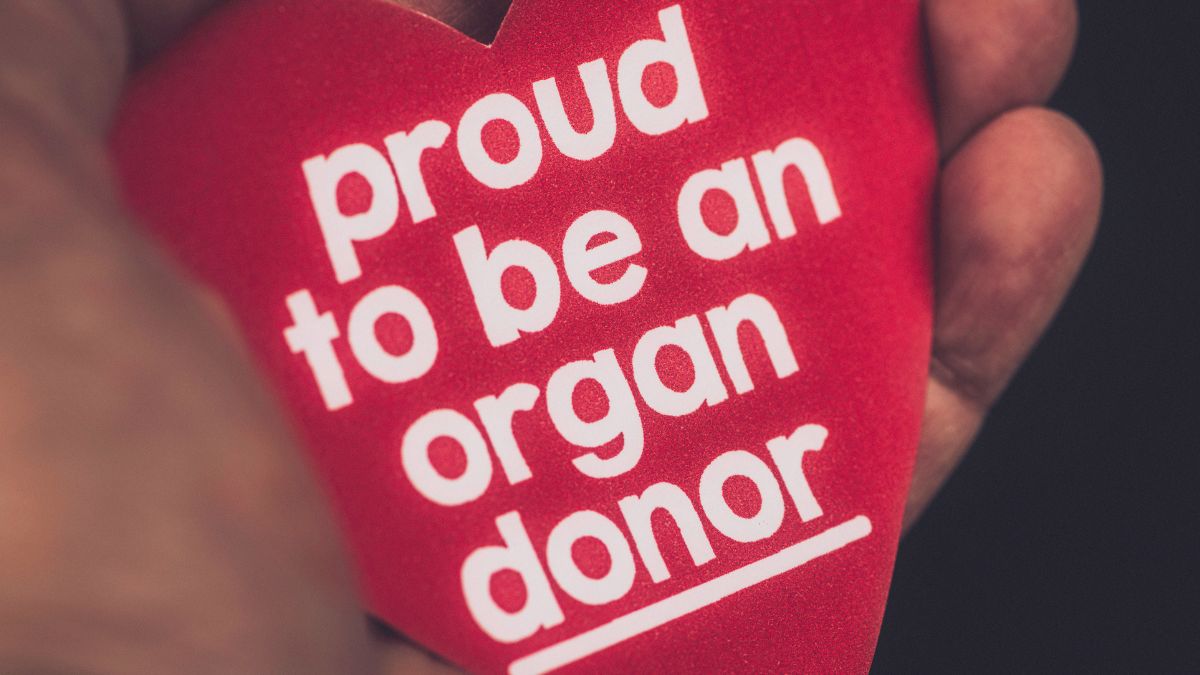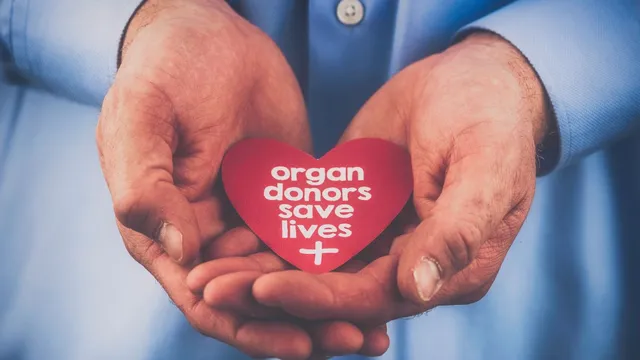- By Priyanka Munshi
- Sat, 10 Aug 2024 05:43 PM (IST)
- Source:JND
World Organ Donation Day 2024: Organ donation is a profoundly selfless act that has the potential to save lives, but it is important to be well-informed before making this decision. Understanding the process, the impact of your donation, and any potential implications for both you and your family is essential. While most organ donations occur after a person has passed away, it is also possible to donate certain organs while still alive, such as a kidney or a portion of the liver.
It's important to recognize that your organs could save multiple lives by giving those in need a second chance. However, there are additional factors to consider. For instance, organ donation may affect funeral arrangements, potentially causing delays or requiring adjustments.

Organ donation is a selfless act that can save lives, but it's crucial to understand the process, impact, and implications for both the donor and their family. (Image Credit: Canva)
Understanding the legal and medical aspects is crucial, including how to register as an organ donor, ensuring your family is aware of your wishes, and knowing the criteria that determine your eligibility as a donor. For living donors, it's equally important to understand the potential risks involved, the recovery process, and how it may affect your long-term health.
In a conversation with Jagran English, Dr. B. Vijay Kiran, a senior consultant nephrologist and kidney transplant physician at AINU in Siliguri, West Bengal, discussed common myths surrounding organ donation.
Also Read: Expert Suggests Foods To Eat And Avoid During Breastfeeding For New Mothers
According to Dr. B. Vijay, it's crucial to address misconceptions that might discourage people from becoming organ donors.
Common Myths About Organ Donation:
Myth: If I donate my kidney, I will develop kidney failure.
Fact: The concern that donating a kidney will lead to kidney failure is overstated. Every year, over 30,000 healthy individuals worldwide donate a kidney to those in need. Research shows that while living kidney donors are at a slightly higher risk of medical complications compared to the general population, the absolute risk remains low. With proper long-term care and regular health check-ups, including annual blood pressure monitoring and kidney function tests, donors can maintain their health effectively. It is important to follow medical advice and maintain a healthy lifestyle to minimize any potential risks.
Myth: As the sole breadwinner of my family, donating a kidney will prevent me from working and earning money.
Fact: This concern is unfounded. Many individuals who donate a kidney can return to work after a few weeks of recovery. The surgical procedure typically does not result in long-term pain or fatigue. While maintaining a healthy lifestyle is essential for overall well-being, most donors can resume their normal activities, including work, without significant disruption. It is advisable to discuss your specific circumstances with your healthcare provider to plan for a smooth recovery.
-1723291626071.jpg)
While most organ donations occur after death, some can be done while alive. (Image Credit: Canva)
Myth: Organ donation will leave me with a large scar and disfigure my body.
Fact: The fear of significant scarring and bodily disfigurement is another common myth. Modern surgical techniques, such as laparoscopy, have greatly improved the organ donation process. This minimally invasive approach results in only small scars and typically involves a brief hospital stay of about three days. Advances in surgical technology ensure that the cosmetic impact is minimal and recovery is swift, allowing donors to maintain their physical appearance with little to no disfigurement.
Myth: I would prefer a kidney from a deceased donor (cadaver) rather than donating my own.
Fact: It is important to understand that a kidney from a living donor, particularly a close relative, often provides a better genetic match compared to a deceased donor kidney. This better genetic match significantly increases the likelihood of a successful transplantation and long-term survival of the organ. While deceased donor kidneys are invaluable, a kidney from a closely matched living donor generally offers superior outcomes due to genetic compatibility.
Also Read: Expert Explains What To Expect Before, During And After Kidney Donation
Myth: Age and health disqualify me from donating.
Fact: Health, rather than age, is the primary factor in determining eligibility for organ donation. Even a healthy 70-year-old may qualify as a kidney donor. Conditions such as diabetes might disqualify an individual, but controlled hypertension, thyroid issues, and other minor health concerns generally do not. The decision to donate is based on a comprehensive medical evaluation to ensure that the donation will not compromise the donor’s health. If a doctor assesses that organ donation could negatively impact your health, they will not encourage you to proceed.

